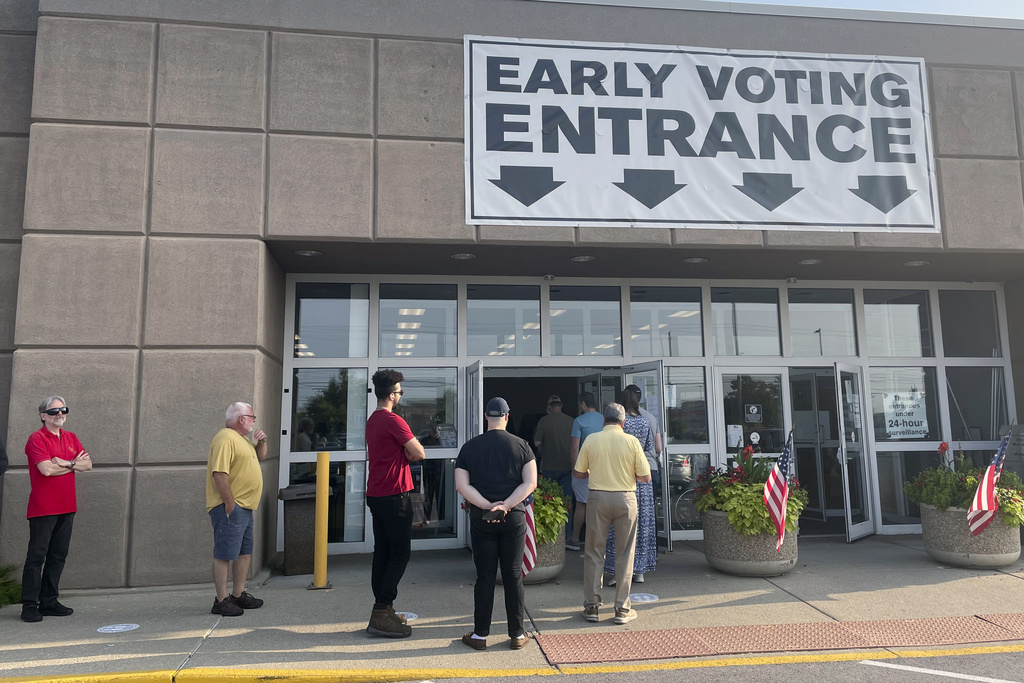Missouri Congresswoman Cori Bush is sponsoring House Resolution 414, which would commit the U.S. government to spend at least $14 trillion to “eliminate the racial wealth gap” black Americans are suffering from today because of the enslavement of their ancestors as well as other wrongdoings since.
The bill has nine sponsors in the House and none so far in the Senate.
Reacting to the resolution, GianCarlo Canaparo of the Heritage Foundation says the resolution claims slavery created “lasting harm” on black Americans. Among the poorest Americans, he says, there was little difference between struggling blacks and whites through most of the 20th century until the 1960s.
Echoing a view of many others, such as black economist Thomas Sowell, Canaparo says the structure of the black family changed for the worse when President Lyndon Johnson introduced his “war on poverty” in 1964. What was supposed to end dependence on government instead created what is now known was the “welfare state” that hurt black families the most.
 “It is the family, staying in the family above all else,” Canaparo says, “that determines your economic, educational success in America.”
“It is the family, staying in the family above all else,” Canaparo says, “that determines your economic, educational success in America.”
Bush, 47, fits that description herself. The daughter of a local politician, Errol Bush, she graduated from a private Catholic prep school then graduated from nursing school. After the fatal shooting of Michael Brown in Ferguson, she became a political activist and then ran for public office.
As far as the projected payment to black Americans, $14 trillion, that figure comes from Bush herself whose resolution cites numerous wrongs inflicted on black Americans dating back to slavery. The enslavement of blacks is equivalent to 222 million hours of forced labor, or $97 trillion of worth, from 1619 to 1865, according to the resolution.
The resolution also includes more than 130 “whereas” statements that list other incidents since the end of the Civil War. A 1919 lynching in Moberly, Missouri left 200 dead and 6,000 homeless at a cost in today’s figures of $8.4 million.
 In 1985, the resolution states, five black children were killed by Philadelphia police when officers bombed a black liberation group.
In 1985, the resolution states, five black children were killed by Philadelphia police when officers bombed a black liberation group.
Other grievances listed include hurting black property owners with eminent domain, school segregation, barring black felons from voting, and excluding black veterans from the G.I. bill.
According to Canaparo, signing House Resolution 414 into law would be a nightmare to administrate.
“Once you really start breaking down who it is who is supposedly still suffering the harms inflicted upon their ancestors generations ago,” he says, “things get arbitrary. They get squishy. They get ridiculous really fast.”

As far as finding the $14 trillion to right all of those wrongs, Canaparo says it doesn’t take an economist to know that would send inflation through the roof, and trigger another Great Department, if a new law requires the printers to create $14 trillion at the U.S. Treasury Department.
One resolution co-sponsor, fire alarm puller Rep. Jamaal Bowman, has said the federal government can find that money like it did during the COVID-19 pandemic.
"Where did the money come from?” Bowman said last week. “We spent it into existence.”














